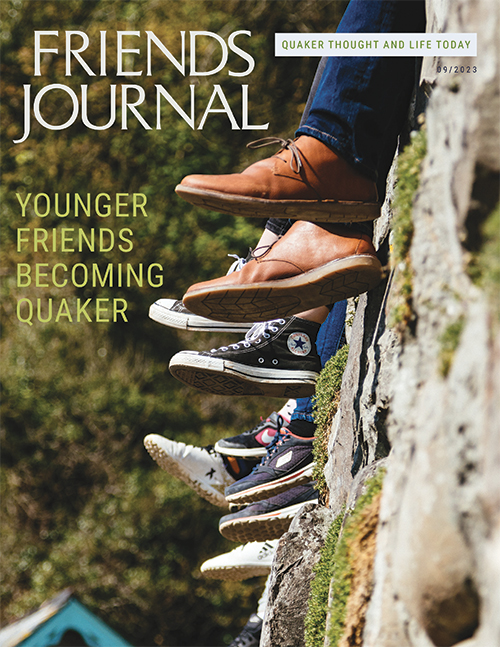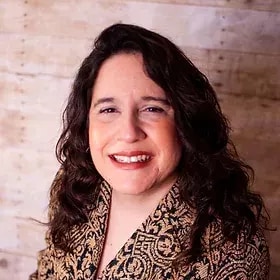Friends determine their next steps on life’s path based on leadings of the Spirit as well as communal and personal insights. Corporate discernment can help Quakers determine whether an inclination is Spirit-led and whether they should choose to follow it. Many Friends seek to incorporate their Quaker values into financially sustaining employment and need guidance about how to do so. Young Friends discerning their work vocations can use offerings such as college career coaches, Quaker Voluntary Service, and the Quaker Fellows Program at Earlham College.
Young Friends deciding on careers can also use informal queries to help discern their direction. They can illuminate their professional strengths by asking themselves questions.
“What is their passion? is a good place to start,” said Gene Hambrick, senior executive director of the Center for Entrepreneurship, Innovation, and Creativity, and executive-in-residence at Earlham College in Richmond, Indiana. “Typically folks that follow Quaker traditions have a mission base,” Hambrick said.
Others echoed Hambrick’s view that identifying one’s passion can help determine which career to pursue.
“Young Friends should think about what energizes them. They can ask themselves what makes me feel alive? And what do you feel so passionate about and so clear about that you want to tell the world about it?” said Miranda Dils, Minneapolis coordinator and administrative coordinator for Quaker Voluntary Service (QVS). QVS is a yearlong program that places volunteers in positions at nonprofit organizations in select U.S. cities.
“Young Friends should think about what energizes them. They can ask themselves what makes me feel alive? And what do you feel so passionate about and so clear about that you want to tell the world about it?”
QVS fellows could ask themselves what qualities they value in themselves, as well as which tasks feel easy and which ones feel challenging, according to Rachel Logan-Wood (Woody), Portland coordinator and alumni engagement coordinator at QVS. They can also consider how their professional contributions complement those of others.
Discovering an overarching purpose to their work helps young people clarify their direction.
“How is my next step after college going to help me do good in this world? is one of the central questions seniors should ask themselves,” said Katie Breslin, senior career coach for Earlham College.
Two main questions guide fellows as they decide on careers, according to Mike Huber, director of program for QVS. One is whether their work enables them to oppose racism, sexism, homophobia, and other types of oppression. The other is whether they are fairly compensated. Fellows often seek career paths that align with the Quaker testimonies of integrity and peacemaking. They aim for jobs in which they do not cause harm and do not deceive people, according to Huber.
Evan Saito, a 2022-23 QVS fellow in Boston, suggests young Friends begin discerning their career paths by asking themselves what brings them joy and what makes them feel connected to things that matter to them.
Spiritual formation experiences give young Friends a larger context in which to place their career decisions. Logan-Wood has QVS fellows read A Hidden Wholeness by Parker Palmer, a Quaker author. The book offers spiritual principles that people of various backgrounds can benefit from. Fellows explore spiritual discernment and Quaker testimonies. They arrive at their own interpretation of the Inner Light. One aspect of the Inner Light that Logan-Wood suggests that fellows consider is that of a refining fire that shines a light on parts of their inner lives that need growth. Fellows practice peer clearness, and QVS staffers match each fellow with a spiritual nurturer. Logan-Wood supports both individuals and the community, but each spiritual nurturer focuses on just one fellow.
QVS spiritual formation emphasizes curiosity and openness and offers practices such as meeting for worship and meeting for business.
“We give them some tools and see if they stick,” Dils said.
Fellows may also embrace tangential practices such as journaling, walking meditations, and lectio divina, according to Rachael Carter, Philadelphia coordinator at QVS. Lectio divina is a Christian monastic practice of reading Scripture, seeing which words stand out, reflecting, responding, and resting in silence.
Most QVS fellows express a strong interest in Quaker discernment.
“I think the biggest value is the fact that discernment doesn’t have to happen alone,” Carter said.
One fellow asked for communal discernment to help decide between nonprofit work and becoming a yoga teacher. After discernment, the person chose to work as a yoga teacher offering the queer and transgender community healing through movement, according to Carter.
QVS fellows live communally on small stipends that help prepare them for service-oriented work. Problem solving in the dominant culture involves relying on private wealth, but in QVS, problem solving draws on the community, according to Huber. For example, if a house of QVS fellows needs a new slow cooker, they would ask for a donated one from the larger Quaker community instead of buying one. As another example, Huber mentioned that a QVS fellow who wanted to learn how to repair cars would not pay for an auto mechanic course but would ask for lessons from community members with relevant expertise. During the year fellows work at nonprofit placements, QVS helps them establish a work–life balance. QVS staff members talk with personnel at placements to advocate for fellows having time to connect with their housemates in the evenings and on weekends.
Communal living also helps QVS fellows to practice conflict-resolution skills that they can use with work colleagues. Living in community leads fellows to view conflict as an act of care and to respect the varying conflict styles of their housemates, according to Logan-Wood.
“I was the only one with a confrontational conflict style in my house,” Logan-Wood said. One of her housemates had an avoidant conflict style and wanted Logan-Wood and others in the house to address disputes with her by slipping a note under the door in which they named the tension they were experiencing and proposed a time to talk the matter over. Logan-Wood found this preference anxiety-producing and learned patience by accommodating it. “It doesn’t have to be this dreaded conversation,” Logan-Wood.
Learning interpersonal skills, such as productively addressing conflict, can make young Friends more effective in the workplace.
Learning interpersonal skills, such as productively addressing conflict, can make young Friends more effective in the workplace. The Quaker Fellows program at Earlham College offers students the opportunity to develop interpersonal strengths. Students participating in the program learn about conflict resolution, intentional community, and Friends practice. Each year of the four-year fellowship program has a different focus. This year’s emphasis is on community building. Next year the focus will be on leadership. Fellows learn how to engage in conflict productively and to talk about their differences. Each fellow has different projects based on their interests, according to Jensen Pennock, coordinator for college meeting and Quaker Fellows at Earlham College.
In addition to deciding on a career focus, young Friends should advocate for themselves as employees. Breslin convened a job negotiation panel to inform young adult Friends about pay equity. She encourages them to research salary ranges for any positions they are pursuing. Isolation and lack of information make job seekers vulnerable to oppression, so Breslin creates mentorship networks for Students of Color. She encourages LGBTQ job seekers to check the non-discrimination statements of potential employers and to ask people within alumni networks about workplace cultures. Applicants can also ask during job interviews about such things as gender-neutral bathrooms and insurance coverage for trans-affirming care. Breslin suggests that applicants with disabilities familiarize themselves with the provisions of the Americans with Disabilities Act of 1990 that offers employees many tools for requesting accommodations. Job seekers can negotiate accommodations after they receive offers.
Young Friends seeking career guidance have many resources at their disposal. Quaker-based vocational direction takes several forms and can provide needed support to those embarking on their professional lives.





Comments on Friendsjournal.org may be used in the Forum of the print magazine and may be edited for length and clarity.